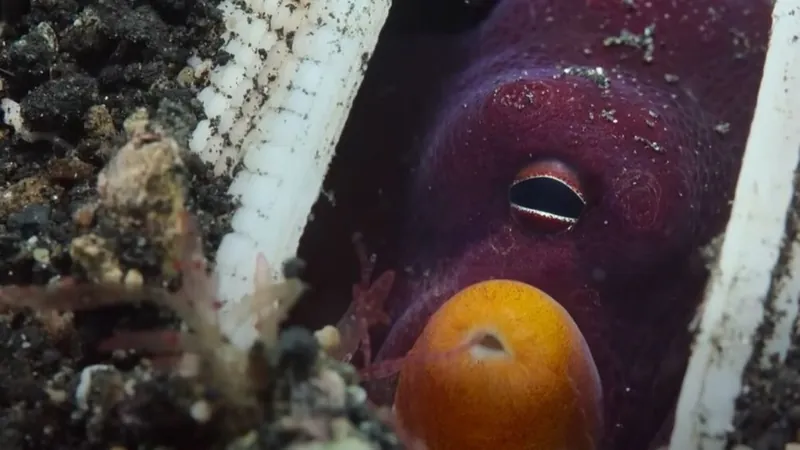
Revolutionary Approach: How Bacteria-Infected Mosquitoes are Tackling the Dengue Epidemic
2024-11-26
Author: Yu
Introduction
Dengue fever cases are surging across the globe, driven by climate change and the spread of Aedes aegypti mosquitoes. While some governments are just beginning to deploy two licensed vaccines against this dangerous virus, an innovative method is being trialed in several countries that could turn the tide on dengue transmission.
Innovative Strategy by World Mosquito Program
Scientists from the World Mosquito Program (WMP), a nonprofit organization, have developed a groundbreaking strategy by releasing mosquitoes infected with a bacterium known as Wolbachia. At the recent American Society of Tropical Medicine and Hygiene annual meeting in New Orleans, researcher Katie Anders shared remarkable results from Niterói, Brazil, where these infected mosquitoes were first introduced in 2015.
Results from Niterói, Brazil
Over several phases, Niterói's initiative achieved complete citywide coverage by 2023. The infected Aedes aegypti mosquitoes have led to astounding outcomes, with Anders presenting data showing a staggering 90% reduction in dengue cases since mid-2019. This is particularly noteworthy given that Brazil, in 2024, experienced its highest dengue cases on record; however, Niterói’s approach likely saved thousands from infection during this peak.
Mechanism of Wolbachia
Typically, Aedes aegypti mosquitoes do not carry Wolbachia naturally. The unique mechanism of these bacteria allows them to compete with viruses for resources, thereby inhibiting the replication and transmission of pathogens responsible for dengue, Zika, and chikungunya. Anders explained that because Wolbachia is passed down from mother to offspring, it creates a sustainable population of infected mosquitoes, which can significantly disrupt the transmission cycle of these viral diseases.
Success in Northern Australia
The program's success can also be seen in northern Australia, where the WMP's initial releases in 2011 have led to approximately 95% of the local Aedes aegypti population becoming Wolbachia-infected. While there are concerns that extreme heat can diminish Wolbachia levels in mosquitoes, research indicates they can recover within months after heatwaves. In fact, the WMP is also experimenting with additional strains of Wolbachia that demonstrate a greater resilience to temperature fluctuations.
Conclusion and Future Prospects
Experts are optimistic about this approach, as controlling mosquito populations in a sustainable way could offer a long-term solution to dengue fever and other mosquito-borne illnesses. As nations grapple with the increasing threat of mosquito-borne diseases, the innovative use of Wolbachia-infected mosquitoes presents a promising avenue for public health organizations worldwide. Stay tuned, as this phenomenon might not only change the way we combat dengue but could also reshape the future of mosquito control strategies across the globe!



 Brasil (PT)
Brasil (PT)
 Canada (EN)
Canada (EN)
 Chile (ES)
Chile (ES)
 España (ES)
España (ES)
 France (FR)
France (FR)
 Hong Kong (EN)
Hong Kong (EN)
 Italia (IT)
Italia (IT)
 日本 (JA)
日本 (JA)
 Magyarország (HU)
Magyarország (HU)
 Norge (NO)
Norge (NO)
 Polska (PL)
Polska (PL)
 Schweiz (DE)
Schweiz (DE)
 Singapore (EN)
Singapore (EN)
 Sverige (SV)
Sverige (SV)
 Suomi (FI)
Suomi (FI)
 Türkiye (TR)
Türkiye (TR)